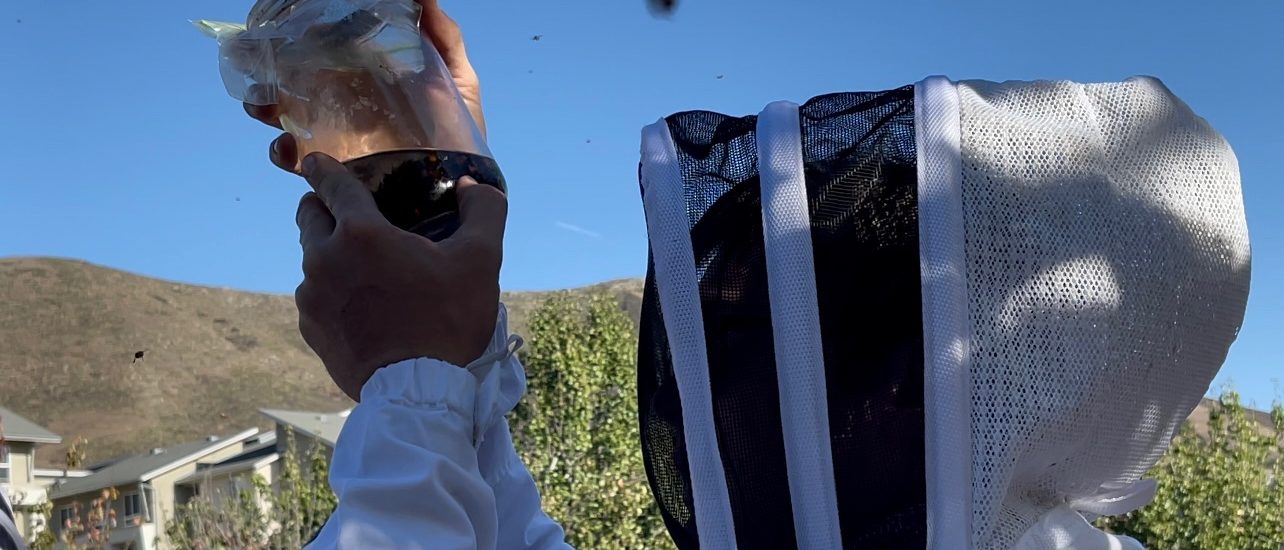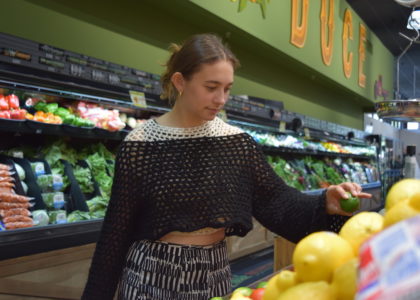By Ashley Holly
Itai Kanot has always known that beekeeping was his calling. “I have been a beekeeper and a farmer for as long as I can remember,” said Kanot, who comes from a prominent beekeeping family in Israel, where he was born and raised .
His passion for the beekeeping industry is what led him to notice some of the challenges it faces. The decline of the bee population has posed a threat to global food security, as 70% of all major crops are dependent on bee pollination.
That is why Kanot partnered up with co-founders Yuval Regev and Omer Davidi to create BeeHero, a product that uses cutting-edge technology to sell precision pollination services to commercial beekeepers.
“Our solution not only helps bees and beekeepers, but it also helps farmers, the supply chain of food, and eventually every person on the planet that eats food,” Kanot said. “We bring science, technology and efficiency into the most important process of food production.”
The technology uses a computer to read and analyze the data of each SmartHive sensor which sits inside the hives in the fields. The sensors track different parameters such as temperature, humidity and sound to provide farmers and beekeepers with actionable insights.
“Our technology is a vessel in which the sensors bring the information from the hive to the server,” Kanot said. “It works like Google translate, translating the language of the bees to the language of humans. We are able to analyze the different behavioral patterns of the bees and understand what exactly is going on in the hives.”
With this technology, the team at BeeHero is able to reduce operational costs and hive mortality rates in order to improve hive health and increase crop yields for the fields they pollinate.
Bees are an essential part of day to day life as agricultural fields need bees to produce fruits and vegetables.
“People usually connect bees primarily to honey but honey is more of a side product,” Kanot said. “Pollination is where bees are a lot more crucial for humanity.”
One of the main industries that bees are needed in is the almond growing industry. According to the Columbia Climate School, California produces over 80% of the global almond supply and almonds are dependent on honey bee pollination.
“Without bees there would be no almonds, so almond growers pay beekeepers to bring bees to their fields during the bloom period,” he said.
This is one example of why bees are so important to everything around us, he said.
BeeHero aims to help with global food security while bringing beekeeping into the 21st century in an innovative way.
Kanot’s team ran through ideas starting with collecting data from ten hives in his backyard to thousands of hives. Once they got to a product they felt good about, they came to the US in 2019 and started partnering with beekeepers. The beekeepers would get their technology for free, including the hardware and the software, if they sent their hives through BeeHero.
BeeHero services pay the beekeeper according to the strength of the hive. With good hives, they have the opportunity to make more money. BeeHero helps keep the hives in better health.
Kanot hopes to continue to grow the company by sending 100,000 hives into pollination which would make them the biggest pollination provider in the US. He also looks forward to exploring other markets outside of the US including Australia and South America.
Currently, BeeHero is in partnership with UC Davis, but Kanot is always looking to expand his educational opportunities.
“We do many collaborations with universities in California, so we are definitely open to partnering with more institutions if the opportunity presents itself,” Kanot said.
Cal Poly’s beekeeping program is one that has expressed interest in companies like Kanot’s to expand their resources.
Beekeeping Professor Jeremy Rose owns a commercial beekeeping business with around 2,000 colonies, sells honey at ten different farmers markets in the San Luis Obispo area and teaches the beekeeping class in his free time at Cal Poly.
Rose recognizes the importance of new technology in the field and looks for opportunities to grow the beekeeping lab at Cal Poly.
Like Kanot, Rose emphasizes the impact that bees have on the almond crop industry.
“The almond crop is very reliant on honey bee pollination,” Rose said. “For the past 15 years, we have brought bees to pollinate the almond trees. The almond industry has been instrumental in growing the honey bee industry, especially in California.”
Global food security is one of the most important factors that beekeepers continue to look to improve. With BeeHero technology, beekeepers can improve their operation on many different levels. Farmers enjoy better hives, better pollination services, and complete control over the pollination process, which was never available before. Bees are in better health because they are treated in a more accurate and efficient way.
With the increasing population, food security is becoming more of an issue. BeeHero helps solve that problem starting from the bottom with the bees who help pollinate all of the major crops.By: Ashley Holly






